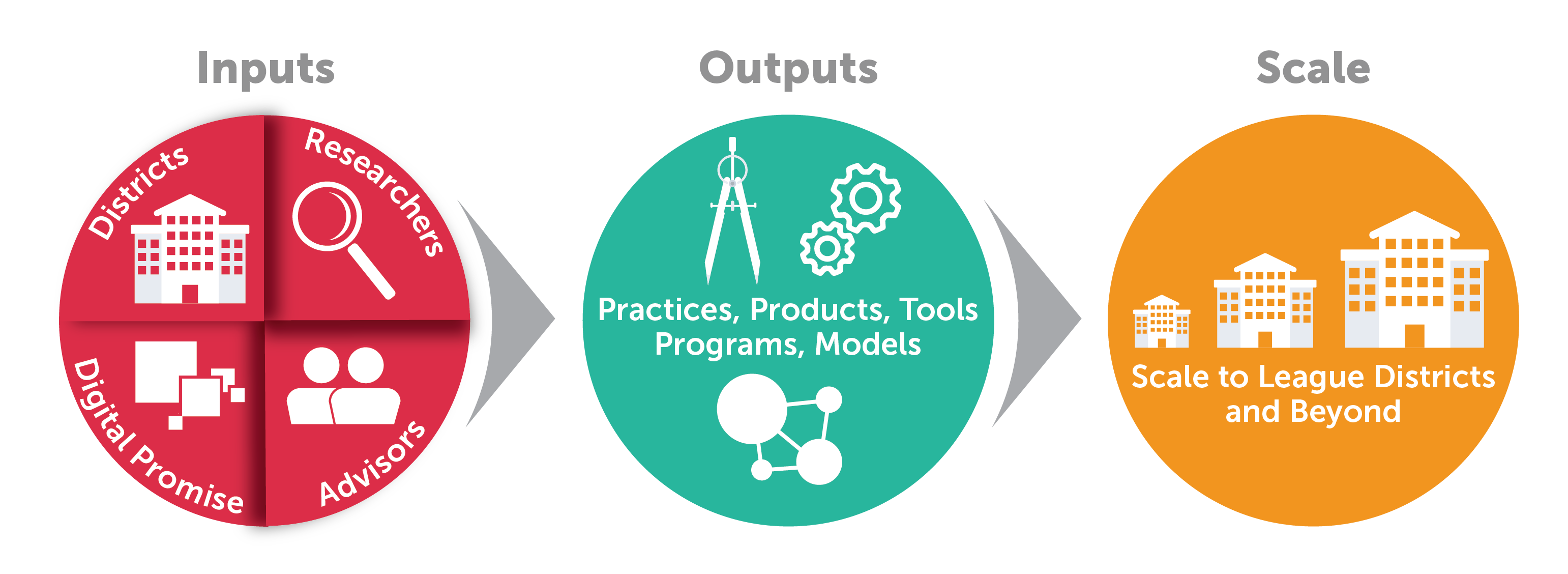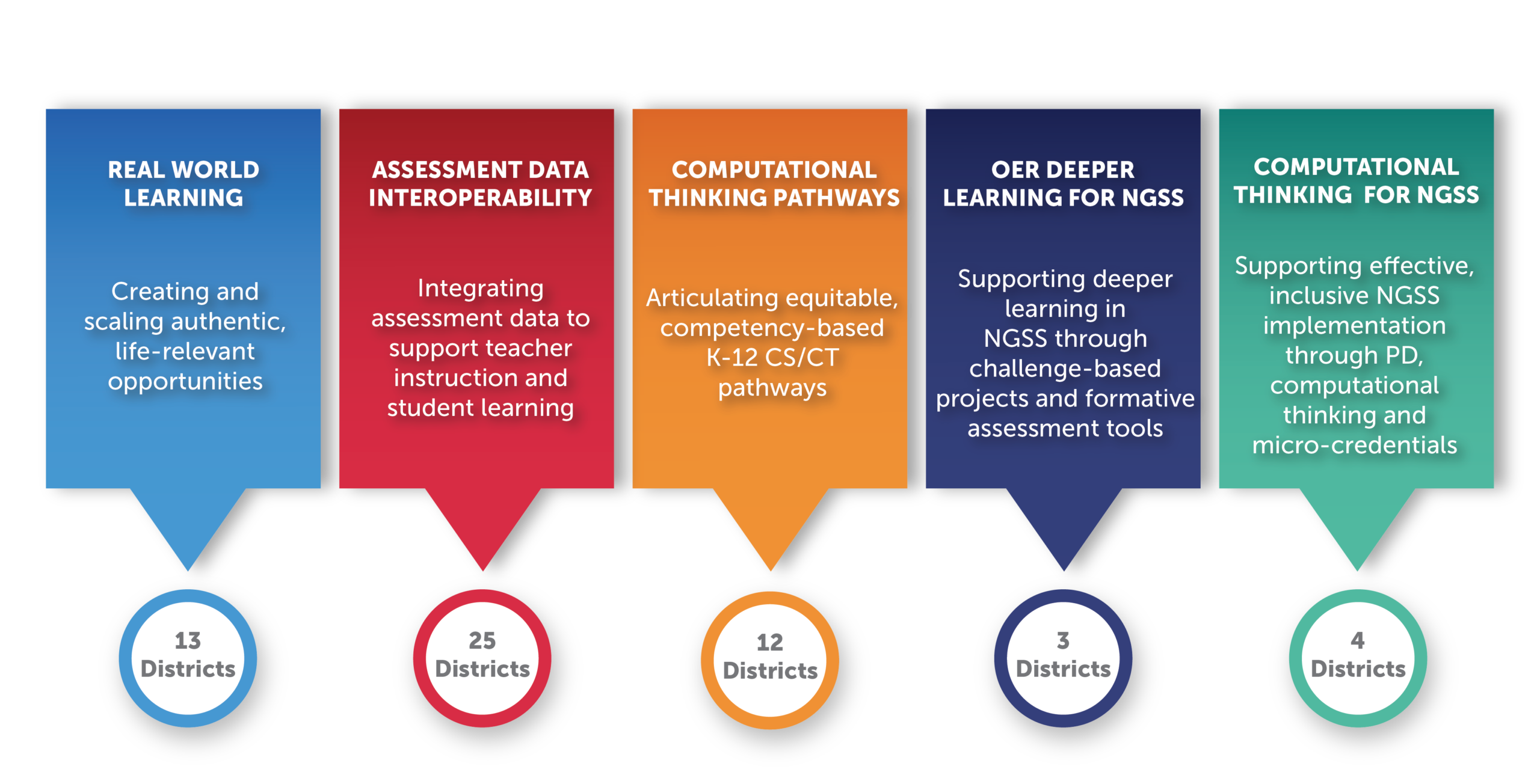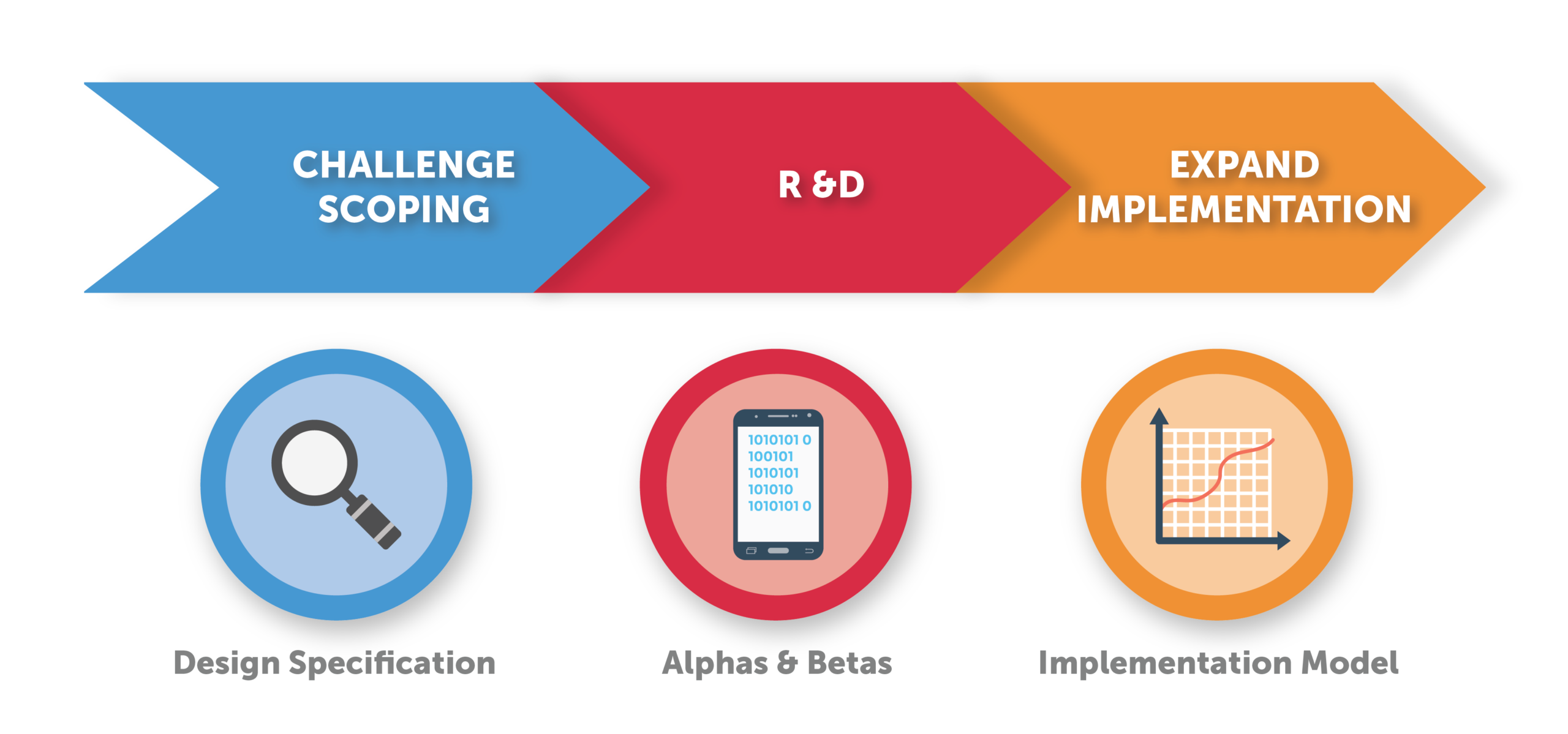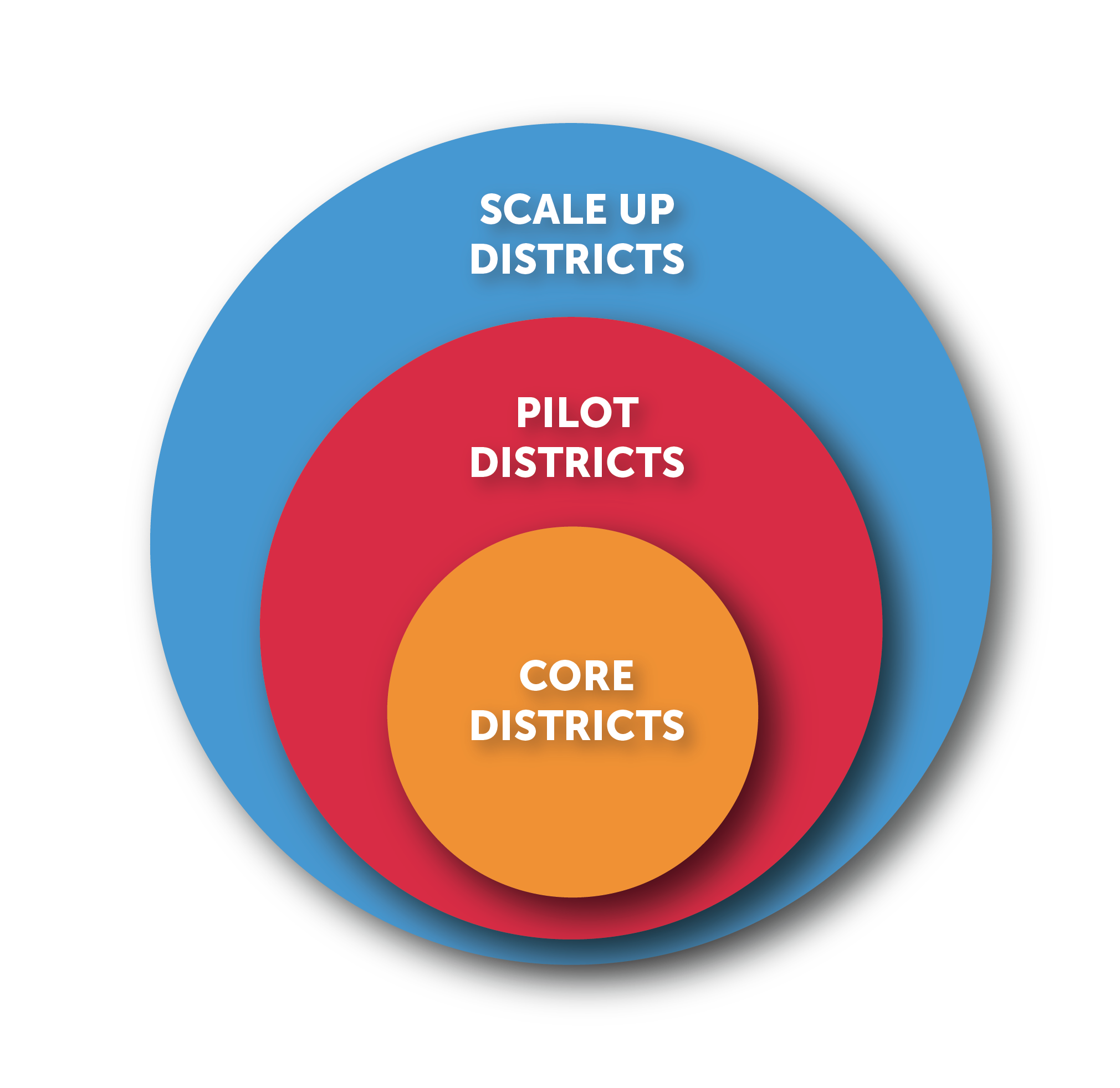Across the country, school districts are tackling the toughest challenges in education, from student academic achievement to data interoperability to family support systems and more. Digital Promise’s Challenge Collaboratives engage teams of public school districts to develop shared solutions to the challenges they face.
Challenge Collaboratives are 1-3 year research and development projects that are driven by the needs and goals of educators. Starting with insights from the Digital Promise Challenge Map, Challenge Collaboratives bring together cross-sector teams (educators, researchers, developers, community members, subject matter experts) to co-create programs, tools, practices, or models to improve teaching and learning.
The outputs are piloted, refined and validated in multiple educational contexts and then shared with school districts outside of the League of Innovative Schools. An example of an output is our Real World Learning Roadmap and Builder to support districts and teachers in designing and implementing real world learning strategies and learning experiences.

Digital Promise facilitates Challenge Collaboratives with the generous support of a diverse set of funders. To date, our portfolio includes five projects:

Challenge Collaboratives support districts through deep collaborations with researchers and developers in rapid-cycle design iterations. This process happens in three stages:


Challenge Collaboratives have a tiered participation structure so that a diverse group of Pilot districts can test and validate early prototypes that are co-designed by a set of Core districts. Scale up districts choose to utilize the output once it has been tested and validated in multiple contexts.
Challenge Collaboratives result in tools and practices that are developed by districts in partnership with researchers — and packaged to spread the learnings and benefits to the broader K-12 market. Models for solving educational challenges will support the creation of agile partnerships between districts, researchers, and others to develop effective solutions that benefit thousands of teachers and students.
Stay tuned to the Digital Promise blog and follow @DigitalPromise and @DPLeague on Twitter for updates and new programs and tools from the Challenge Collaboratives.